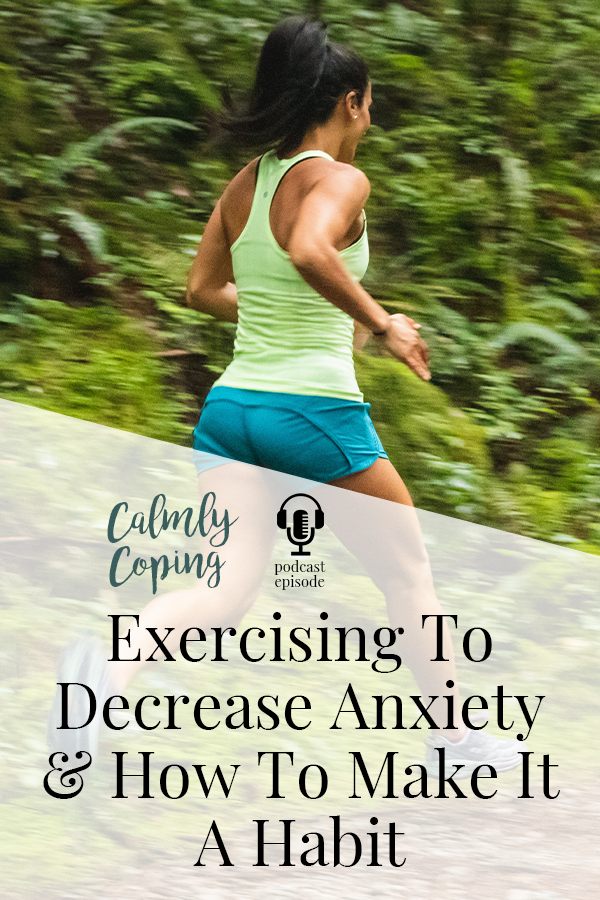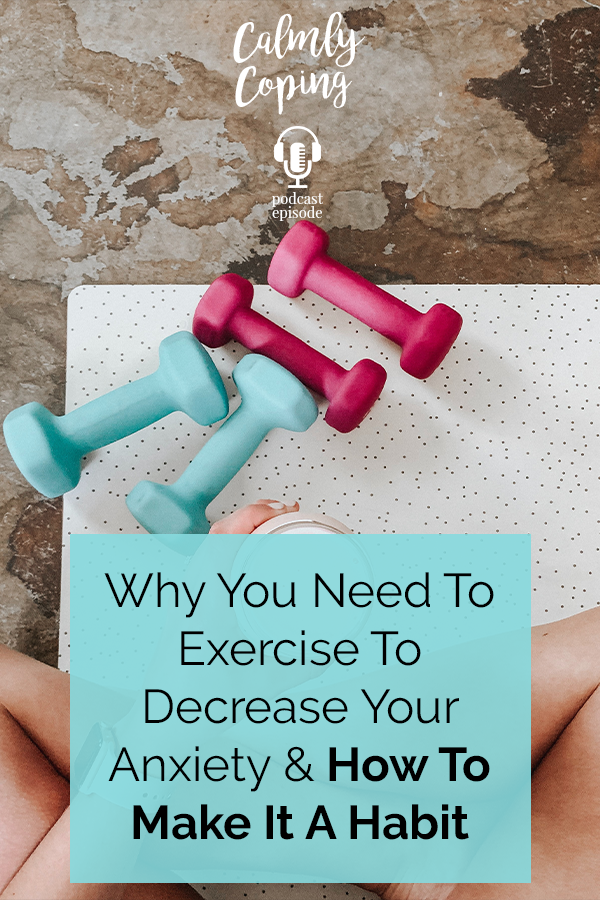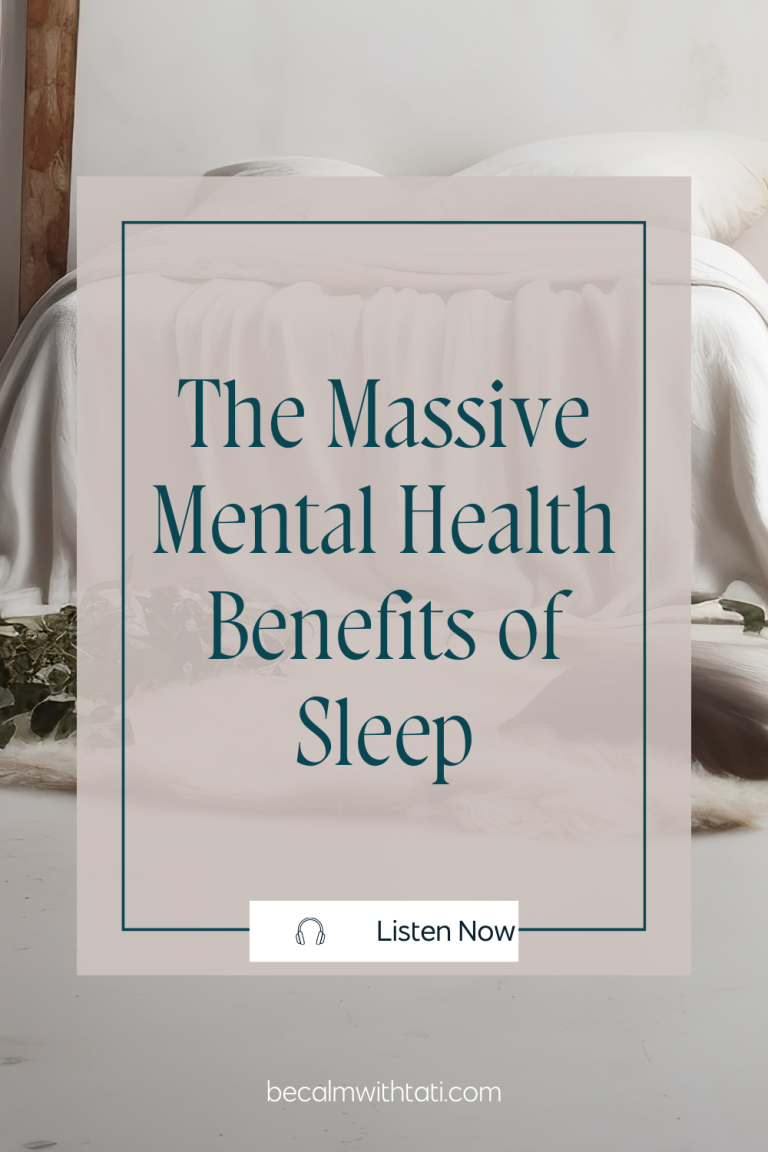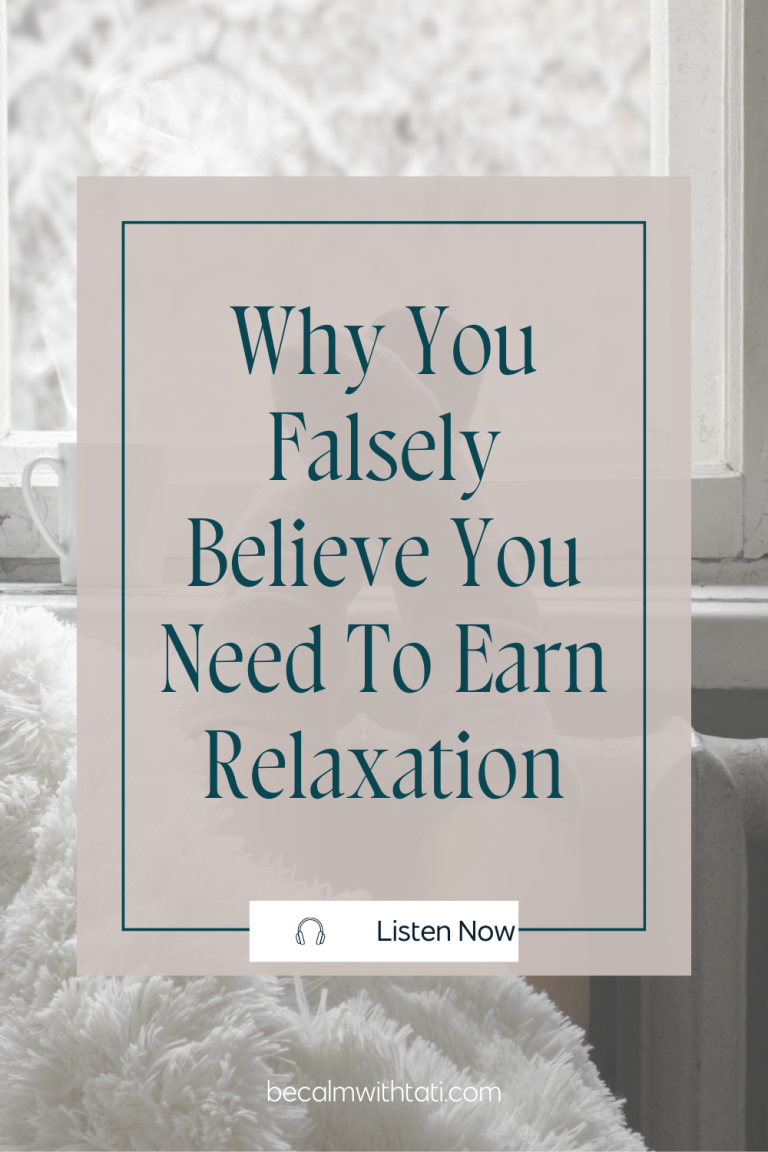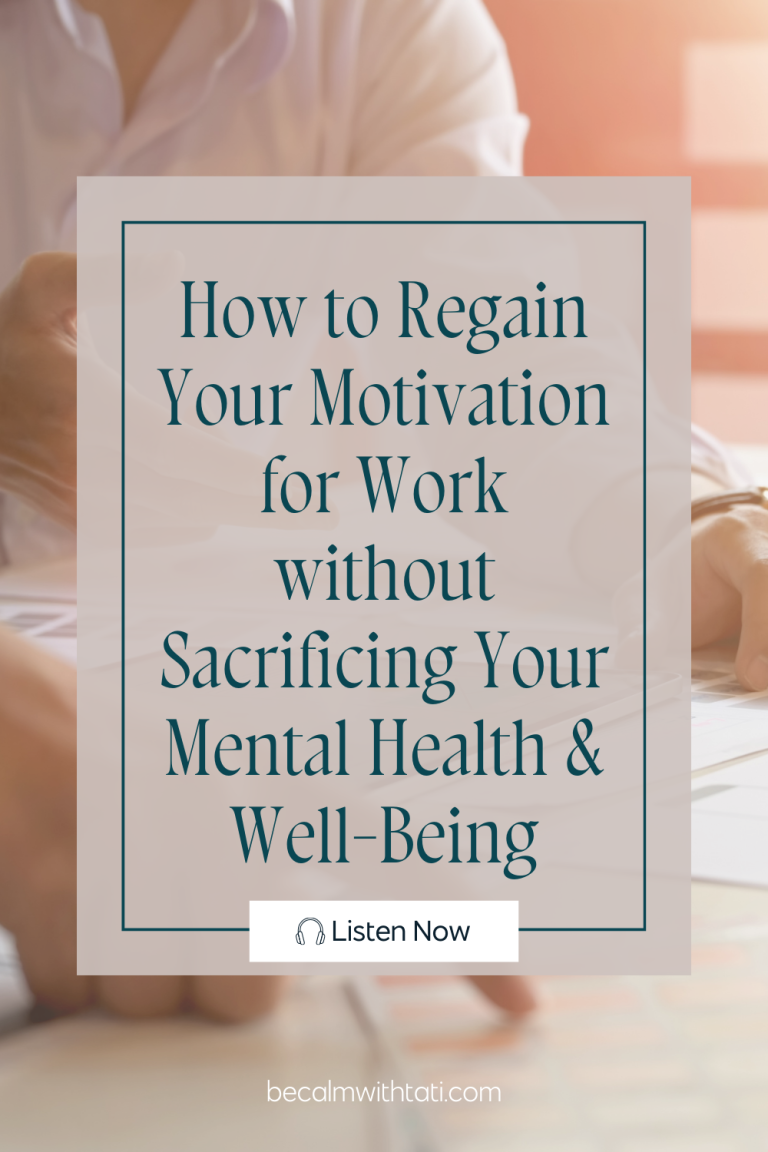Listen Now:
Show Notes:
Exercise is about more than just losing weight and getting into physical shape. Exercise is massively important for your mental health and for decreasing anxiety, and in this podcast episode I’m going to share why, along with my top 4 tips for how to make exercising a regular habit!
In this episode you will learn:
- The research and science supporting the benefits of exercise for your mental health
- The 3 reasons why exercise decreases anxiety and depression
- My 4 tips to help you make exercising a habit, especially when you struggle with high-functioning anxiety
Episode links:
➡ Join Calmly Coping, my free supportive community for high achievers with high-functioning anxiety.
Intro/outro music:
Rescue Me (Instrumental) by Aussens@iter (c) copyright 2018 Licensed under a Creative Commons Attribution (3.0) license. http://dig.ccmixter.org/files/tobias_weber/57990 Ft: Copperhead
Exercise Can Decrease Anxiety and Depression:
Exercise has a massive influence on mental health and well being. Working out is more than just something to do to lose weight or get in shape. It is something that will help you feel more productive, increase your self-esteem, and make you feel happier.
With all of these benefits- why aren’t you doing it?
It can be so easy to come up with all of the excuses in the book to not work out. A lack of time, energy, better things to do, more important things to do, you’ll get to it one of these days…
I’m sure you have used all of these excuses and more. I know I have.
(Affiliate links are used here at no additional cost to you. All opinions are my own.)
Anxiety, Depression and a Lack of Physical Activity:

Anxiety and depression are two specific mental health difficulties that have a relationship with physical activity. A sample of 1042 adults were given the Beck Depression Inventory, the Beck Anxiety Inventory, and questions to determine physical activity levels. A major finding of this study is that individuals who reported not performing physical activity were two times more likely to have symptoms of anxiety and depression when compared with individuals who engage in physical activity regularly.
It is always important to keep in mind that correlation does not equal causation. Does anxiety and depression make it less likely for these people to work out? Or does not working out cause these individuals to be more anxious and/or depressed?
Although these exact questions may not be answered by this one study, I think it is easy to say that physical activity is good for your mind. Physical activity can improve brain plasticity, including learning and retention. Plasticity is the ability for the brain to adapt and change throughout a person’s life. Therefore, moving regularly can help you adapt to your circumstances better and help your brain function more effectively.
Exercise As Treatment For Anxiety:
An excellent book that is chock full of information on how exercise influences the brain is Spark by John J. Ratey, MD.* Dr. Ratey cites exercise as a means of treating anxiety. “Exercise training has been shown to lead to reductions of more than 50 percent in the prevalence of the symptoms of anxiety.”
Anxiety causes you to become more tense, stressed, and often have repetitive worrying thoughts. Exercise helps to counteract these patterns by literally releasing tension and stress in your body, and refocusing your mind on your body and physical activity.
Exercise Is As Effective As Medication In Treating Depression:

Dr. Ratey also cites studies that show that “chronic exercise increases dopamine storage in the brain… and this provides a feeling of satisfaction when we have accomplished something.” Dopamine is a neurotransmitter in the brain that is known as the reward center. Feeling rewarded as a result of engaging in something healthy like physical activity is a major win.
Another study cited in Dr. Ratey’s book by James Blumenthal concludes that “exercise was as effective as medication” in treating depression. An exercise group (walking or jogging for thirty minutes three times a week) was compared to a group on Zoloft and both groups showed a significant drop in depression. Additionally, the study authors found that “exercise worked even better than medicine over the long term.”
Start Exercising Today:
After reading all of this data in support of exercise for improved mental health, are you convinced yet? Personally, I believe that exercise has added benefits such as helping you feel more productive, more confident, and healthier. Engaging in exercise results in a positive feedback loop in which you feel more successful overall because you are successful in caring for yourself.
There are many debates as to what type of exercise is most important. The most important thing is that you get moving in the way that you enjoy most. If you don’t enjoy it, it will not be sustainable, and consistency is important when it comes to long term effects on your mental health.
Ultimately, physical activity has positive influences on mental health, self-esteem, physical health, and overall mood. Start walking, running, doing yoga, going to the gym, hiking, swimming, and/or stretching today. What is your excuse?
Listen to the podcast episode above for all of my tips on how to make exercise a habit!
